It’s here, ‘Adopt A Horse Month’! During the month of May, ASPCA Right Horse is promoting equine adoption
 Promoting your organization can be daunting especially when you have a special event and small marketing budget. Don’t fret. There are some great tools at your fingertips that cost little to no money.
Promoting your organization can be daunting especially when you have a special event and small marketing budget. Don’t fret. There are some great tools at your fingertips that cost little to no money.
If your organization has a website, use it. Be sure to post the event on the main page of the website with a pop up or banner that links to an adoption page. Keep the information up to date. To get the ball rolling on adoption, some groups have added a link to the adoption questionnaire or application to their website. For example, Wild At Heart Horse Rescue, a GFAS Verified and ASPCA Right Horse Partner, has listed easy to follow steps to adoption on their website including a link to the application. Likewise, GFAS Accredited and ASPCA Right Horse Partner, Kentucky Humane Society utilizes their website to provide an adoption page that includes the online adoption form along with a photo and bio that highlights each individual horses’ story and personality.
Another great place to promote your adoptable equines is social media. Create posts on your social media platforms that highlight each horse with a link to your website for more information. Share these posts with ASPCA Right Horse, GFAS and other partners to reach a broader audience.
Appeal to your supporters through newsletters and blogs. This is another great way to drive traffic to your website along with engaging donors.
Contact your local media outlets. Schedule a live broadcast either at their studio or on location to talk about your adoption event and feature those horses available for adoption.
For more great marketing ideas, check out the ASPCA Right Horse ‘Horse Adoption Marketing Checklist’.
It’s Adopt A Horse Month and as a partner of the ASPCA Right Horse program, GFAS will be celebrating equine adoption all month long! Meet adoptable horses from around the country and join us in supporting equine adoption by visiting myrighthorse.org.
The Sanctuary Grass is Greener
By Jess Harris, Farmed Animal Program Director
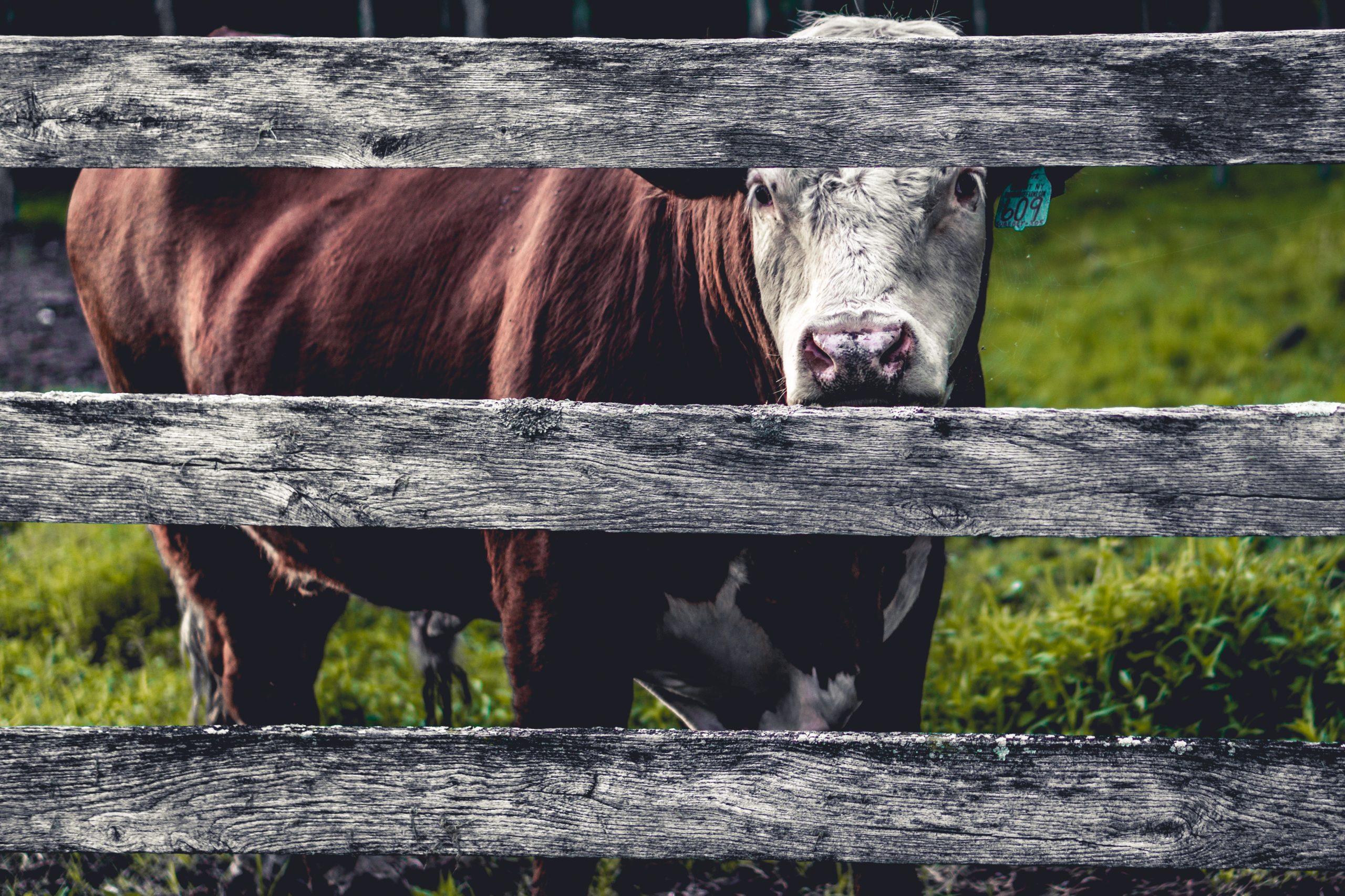 One thing we know with certainty is that sanctuaries tell powerful stories.
One thing we know with certainty is that sanctuaries tell powerful stories.
In our travels to over 200 sanctuaries around the world, we have one of our own to tell.
Due to the nature of their work, sanctuaries are often located off the beaten path- they have to be in order to accommodate the space and natural requirements of their residents. They also have to operate in areas designated for occupancy by animals, and this means that they are frequently neighbored by other animal operations. Not the safe spaces of sanctuary, but often the exploitative operations which make sanctuary necessary. And there is no looking away when they are juxtaposed side by side.
Sometimes the only thing separating life and death is…a fence.
How arbitrary.
On one side, a sanctuary, operating under the philosophy of animals as sentient beings deserving of love, care, and a right to their life, free of exploitation.
On the other side, industries raising and using animals for food, entertainment, or profit.
The animal is the same, the paradigm shift over the fenceline is seismic.
Can it really be sheer chance that determines who lives with respect and who dies for human interests? Which side of the fence they’re on? Who managed to jump from the truck heading to the slaughterhouse, turning this deathly trip into the opportunity of a lifetime – literally landing them in sanctuary? There’s just something that feels so absurd about the randomness of it, how these two worlds occupy the same space, often right next door.
How can we bridge the gap?
Perhaps it is to open the gate and demonstrate a new way. A different way. A better way – grounded in love, respect, and justice.
This might be literally opening your gates– programs that invite visitors to connect with residents (on their terms) during tours, events, sponsorships, and virtually prove to be one of the most powerful tools for creating change for animals. Why is that? Because time and again, research has shown that human opinion and behavior are not changed by statistics, or even necessarily facts, but by emotional connection. Through relationship. Through stories. And meeting and hearing the stories of individuals in a new light, a new way of relating, are a powerful value proposition of sanctuaries.
Criticisms of sanctuaries as inefficient advocates have emerged in recent years in favor of advocacy methods that are purported as “more effective”, more economical, more bang for your buck. Quantifiable results are attractive when it comes to those who are invested in widespread change for animals. But if we as advocates truly subscribe to the view that animals have a right to their life, the rescue at the individual level must also be valued. Every life rescued is one less being exploited. An indisputable right we must respect in the here and now. And each one of those residents is bound to change the hearts and minds of many people through their story and example.
These effects are hard to measure – and in a system that loves metrics and numbers, qualitative results often take a backseat. But they shouldn’t. Social justice movements, including the one to end animal exploitation, require diverse tactics. Require connection. Require modeling of a new way. That is sanctuary. Through every one resident they rescue, and the multiplicative efforts of education and outreach programs, they’re not leaving animals’ fate to chance; every one less knocks down that proverbial fence-line for those not lucky enough to make it to sanctuary on the other side.
We want to help grow sanctuaries’ capacity to do advocacy and outreach in a unified way, and make it as easy as possible for busy sanctuary folks. Starting next month, watch your inbox for our new pilot program – a monthly digital toolkit that will deliver free social media content, action alerts, and important sanctuary news directly to your inbox.
Equine Advocacy Webinar a Success!
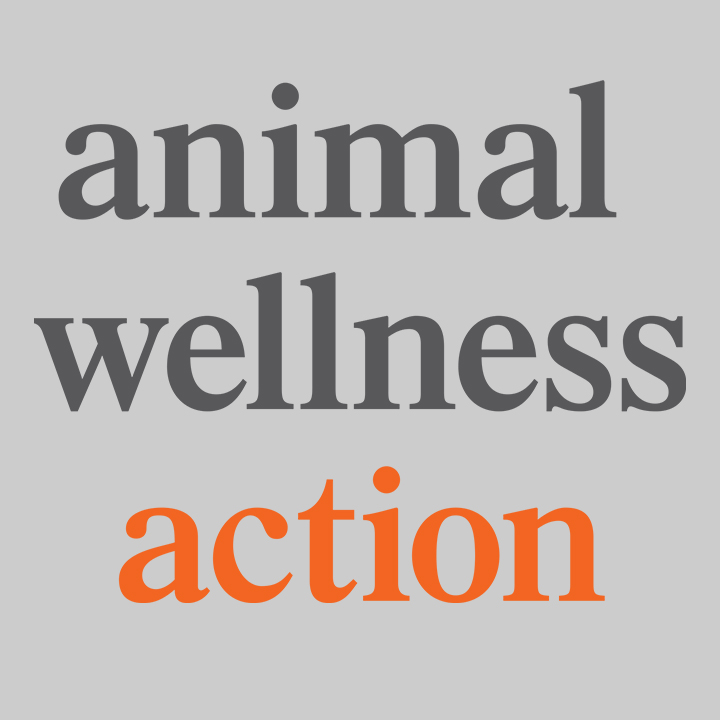 This month, GFAS was thrilled to kick off our Sanctuary Advocacy Webinar series, with equine sanctuaries across the US attending to hear about advancing federal policy for equines. In collaboration with Animal Wellness Action, speakers Scott Beckstead (Director of Campaigns) and Natalie Ahwesh (Director of State Affairs) not only gave us the latest insight on equine initiatives, but also facilitated so many easy ways that sanctuaries can lend their voice to this fight. We extend our sincere gratitude to AWA for helping GFAS sanctuaries and rescues leverage their expertise this way and look forward to our next webinar in the series next month. If you missed this one, you can watch the recording here.
This month, GFAS was thrilled to kick off our Sanctuary Advocacy Webinar series, with equine sanctuaries across the US attending to hear about advancing federal policy for equines. In collaboration with Animal Wellness Action, speakers Scott Beckstead (Director of Campaigns) and Natalie Ahwesh (Director of State Affairs) not only gave us the latest insight on equine initiatives, but also facilitated so many easy ways that sanctuaries can lend their voice to this fight. We extend our sincere gratitude to AWA for helping GFAS sanctuaries and rescues leverage their expertise this way and look forward to our next webinar in the series next month. If you missed this one, you can watch the recording here.
If your sanctuary wants easy policy sign on opportunities, powerful, curated social media content, and template endorsement letters to readily support equine policy, contact Natalie at AWA at .
Asia for Animals Webinar: understanding animal cruelty on social media
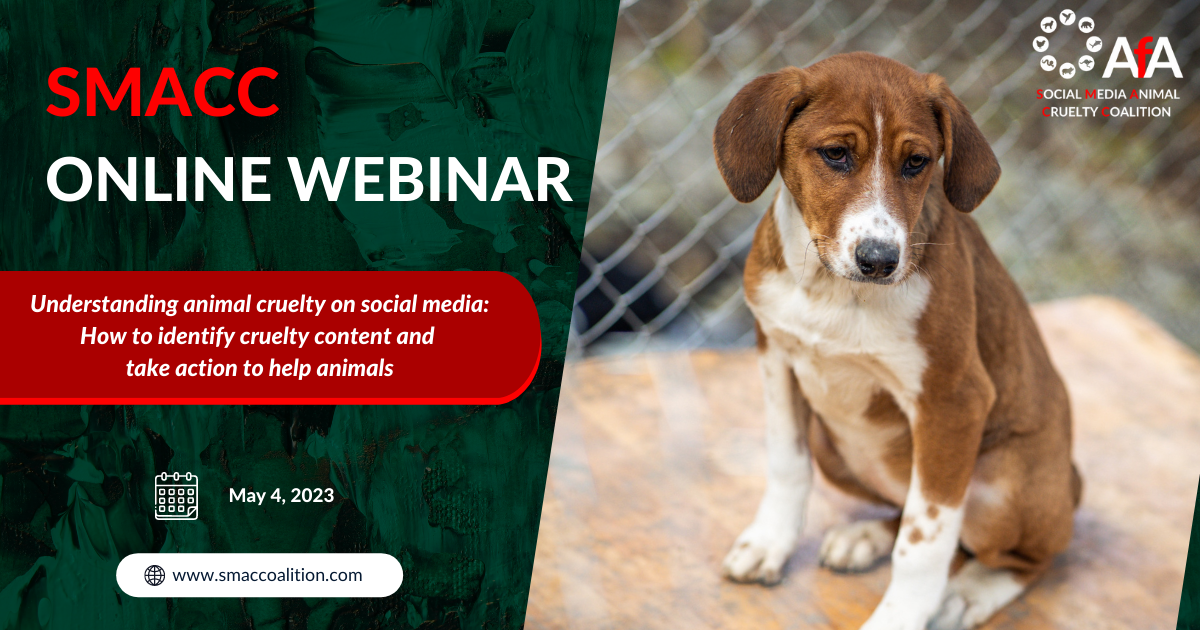 On May 4, the Asia for Animals Social Media Animal Cruelty Coalition (SMACC) presented a live webinar on the topic of animal cruelty on social media. GFAS Program Director Jackie Bennett was among the panel of speakers that also included presenters from Born Free USA, Lady Freethinker, and Taiwan SPCA. The webinar explored the cruelty issues surrounding wild animals as pets, the presence of “fake rescue” content on social media, and challenges to investigating and prosecuting animal abusers. If you missed the live event, you can watch the recording on YouTube: https://www.youtube.com/live/T5hLGl31ghQ?feature=share and learn how you can take action to stop online animal cruelty content.
On May 4, the Asia for Animals Social Media Animal Cruelty Coalition (SMACC) presented a live webinar on the topic of animal cruelty on social media. GFAS Program Director Jackie Bennett was among the panel of speakers that also included presenters from Born Free USA, Lady Freethinker, and Taiwan SPCA. The webinar explored the cruelty issues surrounding wild animals as pets, the presence of “fake rescue” content on social media, and challenges to investigating and prosecuting animal abusers. If you missed the live event, you can watch the recording on YouTube: https://www.youtube.com/live/T5hLGl31ghQ?feature=share and learn how you can take action to stop online animal cruelty content.
GFAS is proud to be a core member of the Asia for Animals Coalition and a member of its SMACC working group. Learn more about SMACC’s work here: https://www.smaccoalition.com/
LIG Solutions Health & Wellness Round-Up
One of the benefits offered to organizations that are GFAS certified is access to exclusive health insurance and related coverage options for them, their families, and their personnel through a GFAS partnership with the LIG Association Health Program. LIG Solutions also offers a quarterly Health & Wellness Round-Up, which we thought would be helpful for all our newsletter readers. You can view that information here.
GFAS Verified Dharmahorse Equine Sanctuary Hosts Workshop Series
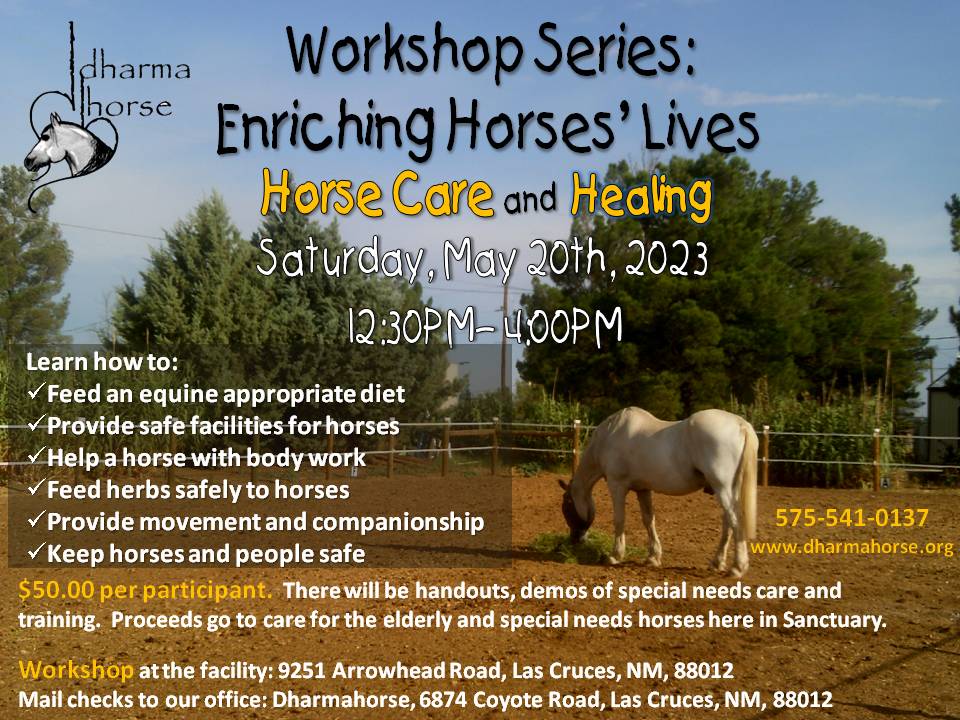 Many of the GFAS certified organizations include education as part of their mission, and Dharmahorse Equine Sanctuary is no different. What is different is the types of learning opportunities this organization provides. Not only does Dharmahorse host onsite workshops like the one coming up on May 20th, ‘Enriching Horses’ Lives Horse Care and Healing’, but they also make educational modules and videos available on their website.
Many of the GFAS certified organizations include education as part of their mission, and Dharmahorse Equine Sanctuary is no different. What is different is the types of learning opportunities this organization provides. Not only does Dharmahorse host onsite workshops like the one coming up on May 20th, ‘Enriching Horses’ Lives Horse Care and Healing’, but they also make educational modules and videos available on their website.
This comprehensive education program covers a large variety topics such as general horse care, colic, joint care and weight management, and training techniques for trailer loading and confidence just to name a few. All with the intent of promoting proper care and bonding.
Need ongoing training opportunities for your staff and volunteers? The online educational modules and videos provided by Dharmahorse could be just what your organization is looking for. Are you an individual who wants to learn more about how to care for your equine? Attend one of the onsite workshops, or download the modules.
For more information on Dharmahorse Equine Sanctuary and their education program, go here.
Safe Haven Wildlife Sanctuary: Preparing for the Future
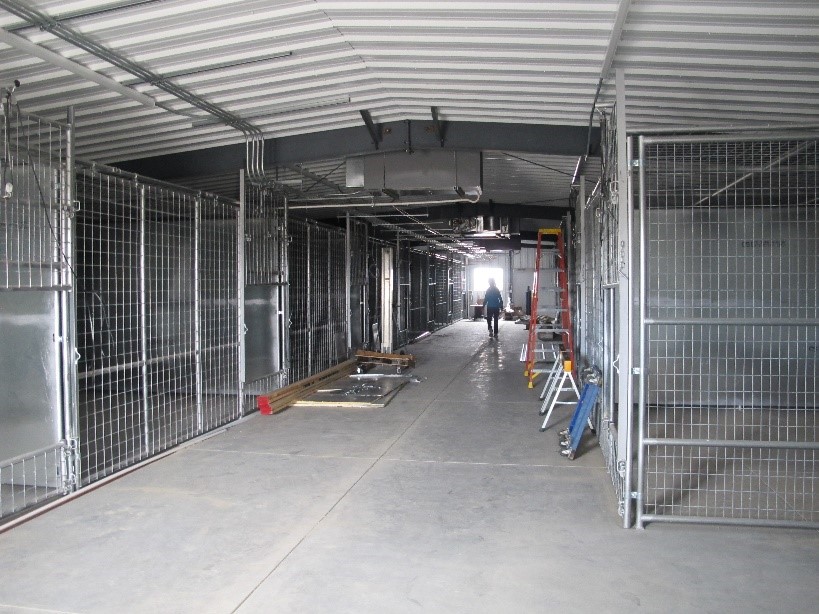
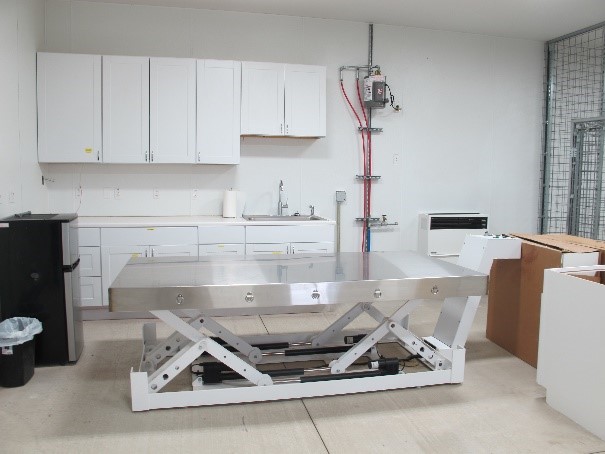 GFAS Accredited, Safe Haven Wildlife Sanctuary in the high desert of Imlay, Nevada is home to a wide variety of rescued wildlife including, large and small exotic and native cats, black bears, coyotes, foxes, and tortoises. As the sanctuary population has increased, so has the need for routine and specialized veterinary services. Typically, Safe Haven’s mobile veterinarian is able to come out to the sanctuary as necessary, but animals requiring more intensive procedures like surgery would necessitate transport to a hospital a few hours away. Lynda Sugasa, Safe Haven’s executive director has long had a goal to build a hospital onsite and now she has one! The new facility affords veterinarians the space and tools they need to care for the animals as needed onsite. Sugasa has also noticed changing weather patterns across Nevada and after last year’s California wildfires brought weeks of unhealthy and problematic thick smoke to the sanctuary, a plan was set in motion to build a climate emergency shelter. The 40’ x 100’ temperature-controlled building can house a large number of their animals in any extreme weather event. With the recent completion of the climate emergency shelter, came immense peace of mind for Sugasa and her team. Now, for the foreseeable future, Safe Haven Wildlife Sanctuary stands ready for whatever comes their way. To learn more please visit: A Home For Wildlife | Safe Haven Wildlife Sanctuary
GFAS Accredited, Safe Haven Wildlife Sanctuary in the high desert of Imlay, Nevada is home to a wide variety of rescued wildlife including, large and small exotic and native cats, black bears, coyotes, foxes, and tortoises. As the sanctuary population has increased, so has the need for routine and specialized veterinary services. Typically, Safe Haven’s mobile veterinarian is able to come out to the sanctuary as necessary, but animals requiring more intensive procedures like surgery would necessitate transport to a hospital a few hours away. Lynda Sugasa, Safe Haven’s executive director has long had a goal to build a hospital onsite and now she has one! The new facility affords veterinarians the space and tools they need to care for the animals as needed onsite. Sugasa has also noticed changing weather patterns across Nevada and after last year’s California wildfires brought weeks of unhealthy and problematic thick smoke to the sanctuary, a plan was set in motion to build a climate emergency shelter. The 40’ x 100’ temperature-controlled building can house a large number of their animals in any extreme weather event. With the recent completion of the climate emergency shelter, came immense peace of mind for Sugasa and her team. Now, for the foreseeable future, Safe Haven Wildlife Sanctuary stands ready for whatever comes their way. To learn more please visit: A Home For Wildlife | Safe Haven Wildlife Sanctuary
New Certifications and Renewals
Over the past month, GFAS has renewed two GFAS organizations!
Congratulations to these groups!
Renewals
Farmaste Animal Sanctuary, Minnesota
Safe Haven Wildlife Sanctuary, Nevada
